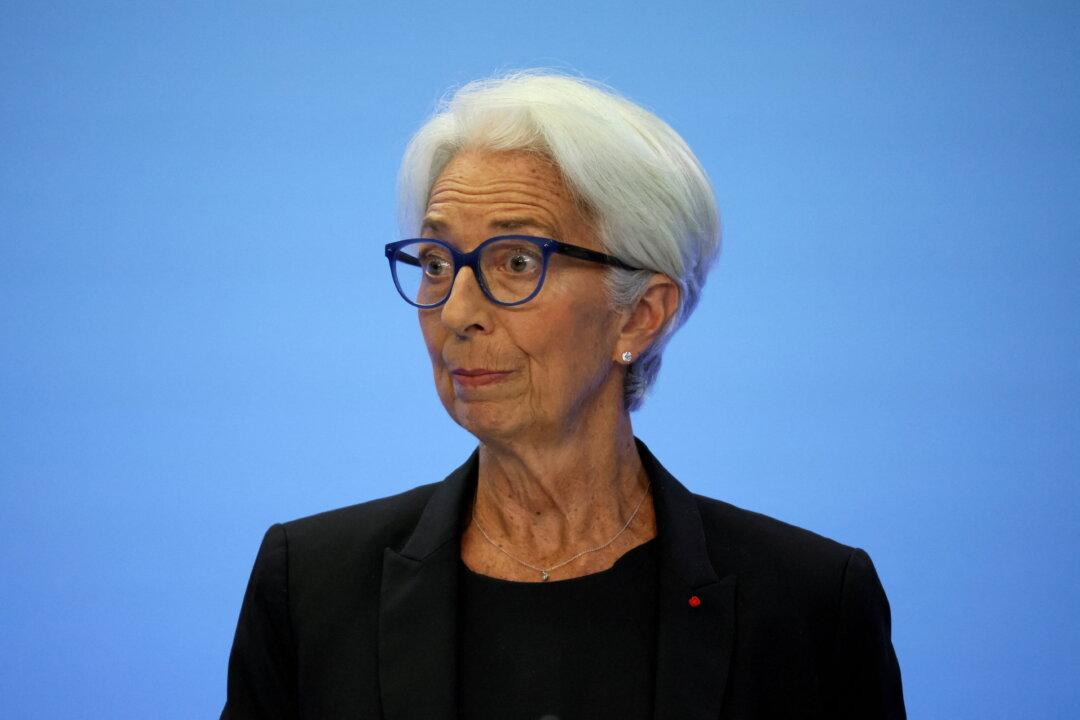The European Central Bank (ECB) hiked interest rates again on Thursday by the largest increment since the bank’s founding, as policymakers in the Eurozone scramble to stem the tide of rising inflation throughout the region.
Initially, ECB policymakers were divided between a 50 and a 75 basis point increase in the zero percent deposit rate. The consensus favored the latter as a necessary measure to curtail inflation, which has been on the rise in the Eurozone since 2020.





